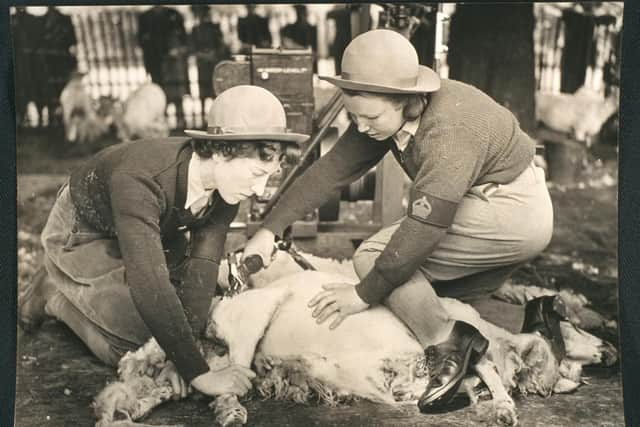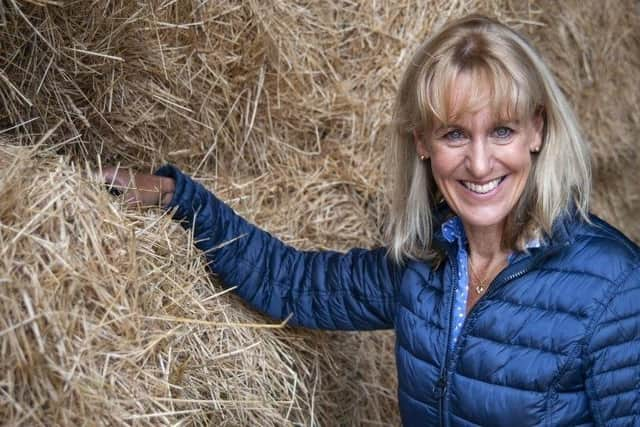More needs to be done to get women into farming as world marks International Women's Day
Minette Batters, president of the NFU and a first generation shepherdess have spoken about the issues as the world marked International Women’s Day this week.
Women have always played a role in farming and recent years have seen more women taking direct careers in the industry as well as supporting roles - but there is still work to be done on perceptions and access to the work.
Advertisement
Hide AdAdvertisement
Hide AdEmily Cowper-Coles is a first-generation farmer and works for a land-owner in The Yorkshire Dales as a shepherdess with her dog, Nap, overseeing 350 Swaledale Ewes, and castle, on the moors near Richmond.


She left a safe and secure job with the Yorkshire Wildlife Trust because she wanted to work a dog and work outside - but confesses she has considered leaving it.
She told Country Post: “It has been a real journey and learning experience but I have got the closest bond with Nap. I have thought about leaving because it has been so difficult to find somewhere to live and afford it but I can’t because I don’t want to let my dog go.
“I was not born into a farming family and that is a huge challenge. You don’t have that direct contact and opportunity to learn where you would if you grew up on one. When you are passionate about something you want, you make your own way, so I got my dog and here I am.”
Advertisement
Hide AdAdvertisement
Hide AdAfter studying at university to be an environmental scientist, she is passionate about continuing that art of working a dog, conservation and also educating school children about farming, animals and the food production process.


She looks after her own small-holding where children can visit and she hopes to get her own shearing trailer to better utilise wool.
Emily said: “There is definitely a lot more openness about it now, but in terms of getting into the sector as a lone woman, it might be the same for younger men, there are two extra barriers to break down before you get through the farm gate and get a position.
“It is hard to get respect and prove yourself when you an outsider, female and not born into it. Sometimes I think people want you to not succeed. I have to stick to my guns and back up who I am.”
Advertisement
Hide AdAdvertisement
Hide AdThe story of ‘Women in Agriculture’ is being told through images taken by The Daily Herald, a national newspaper published between 1912 and 1964, and are in an archive at the National Science and Media Museum in Bradford.
Some highlights include women becoming mushroom farmers and The Women’s Land Army (WLA) set up to boost food production during the Second World War. By 1944, there were more than 80,000 women working long hours milking cows, digging ditches, sowing seeds and harvesting crops to feed the nation.
The archive shows women have traditionally faced significant barriers to working in the agricultural sector.
However, in February 2018, a milestone was reached when the 110-year-old National Farmers’ Union elected beef farmer Minette Batters as its first female president.
Advertisement
Hide AdAdvertisement
Hide AdShe said: “Women have always been the backbone of a large majority of UK farming businesses and traditionally have probably not had the recognition they deserve.
“Nowadays, the farming industry is quite diverse. There are many more women coming into agriculture, judging by the numbers in agricultural colleges and universities. There are also many more opportunities to be involved in farming-related businesses and the wider industry – jobs in science and retailing, for example.
“Many farmers I speak to are delighted that their daughters are wanting to come into the industry, but succession does remain a problem – and that’s for both sexes – although the situation has improved over the past few years.”
